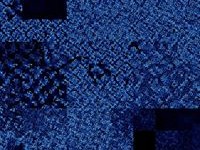„Random Time Radio“ (RTR) ist das begleitende Radioprogramm zum Festival ADDICTED2RANDOM. Es versucht den Zufall, das Beiläufige (sowohl das Ungeplante, als auch das Ignorierte – weil alltägliche, das Unscheinbare) in der schaffenden Audiokunst abzubilden, in dem es mit Hilfe experimenteller und ungewollter Vorgehensweisen, aber auch durch technisch generierte Zufällig- und Abhängigkeiten Musik- und Geräuschkulissen erschafft.
Komponist_innen und Sounddesigner_innen auf der Welt waren aufgefordert, Stücke für das RTR einzureichen. Das Programm entstand in Zusammenarbeit mit dem internationalen Radiokunst-Netzwerk Radia. Die formale und inhaltliche Varianz war sehr ausgeprägt – hörbar und mehr als purer Zufall wurde das RTR ab 10. Juli 2013, 21 Uhr auf Radio Corax UKW 95,9 in Halle und Umgebung und via Live-Stream im Internet. Die Idee eines „Random Time Radio“ stammt von der Radiokünstlerin Verena Kuni. Es verfolgt die Utopie eines durch Zufall(-szeit) gesteuerten Radioprogramms.

